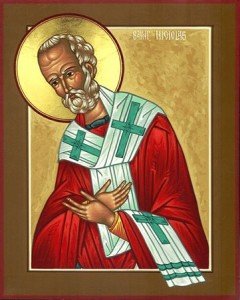 The early Church had to think through and resolve many questions that arose, some immediately, others as the Church reflected on the gospel narrative. How She did it tells us much about the Church.
The early Church had to think through and resolve many questions that arose, some immediately, others as the Church reflected on the gospel narrative. How She did it tells us much about the Church.
For example, we have the question of authority. We know that there were many things written by Christians during the formative years of Christianity. We have to ask: Why were certain documents considered authoritative for the life and thought of the Church? What was the source of this authority? What separates documents such as the four canonical Gospels (i.e., those contained in the New Testament) from other texts that attempt to tell and interpret the meaning of Jesus’ life? There are the Gospels of Thomas and many others! Not only is the question of the Scripture’s own inherent authority highly significant, but so also is the issue of what one is to do when Christians read the text of Scripture and interpret it differently. How can one distinguish a correct interpretation of Scripture from an incorrect one? How did the early church handle this considerable problem?
Another important question was, as I have written about in other articles in the Bulletin: Who is Jesus Christ? This was a very important question which the early Church had to address. Many different opinions and ideas, formulated by bishops and priests, arose in the early years of the Church. We have, for instance, the question of Jesus’ divinity. If Jesus was God incarnate, as New Testament writers appeared to insist, in what way was He God? How could this be possible. Were there actually three gods: the Father, the Son and the Holy Spirit? OR was Jesus perhaps a lesser god, not on the same plane as the Father, but in some mysterious and ineffable manner divine nonetheless? Maybe there was only on God, but that single God possessed the marvelous ability to manifest Himself in various forms or roles, occasionally as the Father and at other times as the Son or the Spirit. How was one to make sense of the very complex biblical testimony regarding Jesus’ divinity?
And then we have the question of Jesus’ humanity. The Gospel narratives surely seem to portray Jesus as a human being. He had a human body – or at least appeared to have one – and thus ate food, drank wine, was tired after a long day’s work, slept at night, spoke a human language and possessed all the qualities of a human.
More to come!
